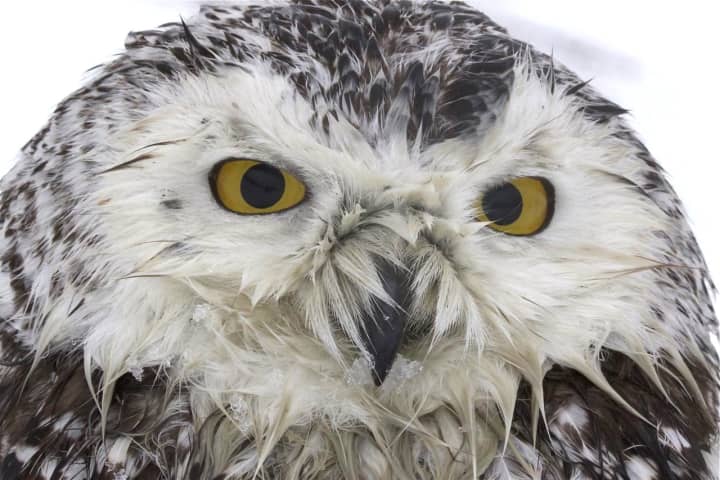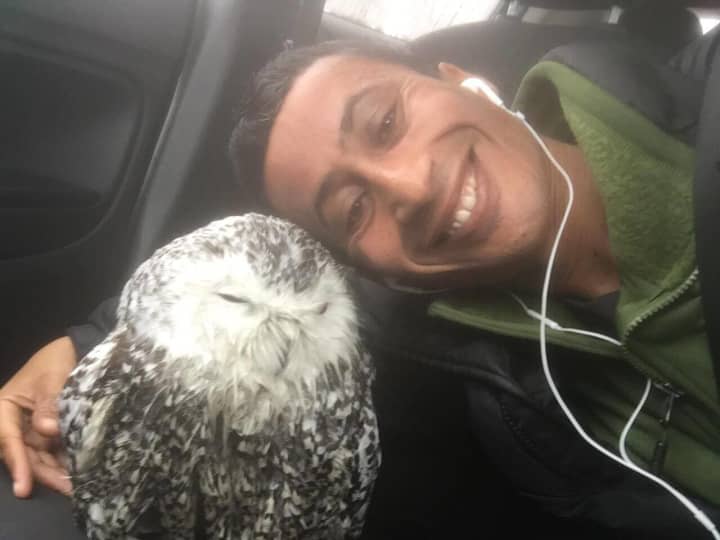"This was a first-year bird. It arrived in Connecticut already compromised from the long migration from the tundra, the Arctic," said Christine Cummings, president of A Place Called Hope.
The owl, which Cummings said would have been well fed with the heavy population of the lemmings when he began his journey to Connecticut, was rescued by wildlife photographer Anwar Alomaiwas, a Peekskill native, who currently resides in Elmsford.
Alomaisi came across the owl in Stratford, Conn., off the side of Route 113, and after taking a few photos, he realized the bird wasn't right.
Cummings said the bird likely had trouble hunting once it arrived in Stratford, where he was found.
Originally thought to be a female, Cummings said that based on size, she believes this bird was a juvenile male because of his small size and that males are whiter than females who are more heavily mottled.
"This male failed to thrive. Finding food and eating daily was critical to its survival. It was unable to do so in its new environment.," she said. "Hunting is not easy despite the weapons these birds sport. Only about 20 percent of birds hatched each season will survive their first year of life. With each year that passes, their chances improve."
She said the bird died due to emaciation: "Simply put, it was literally starved. When a bird in this condition weakens, all the stored energy must go towards keeping vital organs from failing. Eventually, the organs give up. Which is what happened in this case. Despite our efforts, the damage was already done. We were too late."
Alomaisi was able to approach the bird due to his condition, Cumming said.
"Like the rest of this snowy owls fans, I am devastated. We did all we could. We can at least find comfort in knowing that he did not die out in the weather elements, or by being preyed upon. He was safe, warm, hydrated, nourished and in a dark and quiet environment," Cummings added.
Click here to follow Daily Voice Peekskill and receive free news updates.



